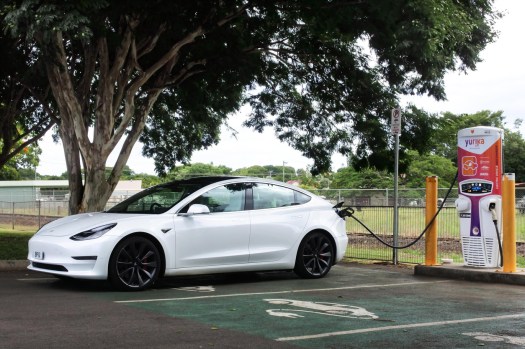Local government can play a crucial role in accelerating Australia’s uptake of electric vehicles, says the EV industry’s peak body.
Local governments can lead by example in transitioning to EVs and increasing the visibility of the vehicles in the community, says the Electric Vehicle Council. Furthermore, local governments have the ability to help raise community awareness about EVs and the potential benefits of transitioning to the technology.
Local governments can also help foster an environment that supports the rollout of EV charging infrastructure across the local community, says the national peak.
In partnership with the City of Ryde in northern Sydney, EVC has developed a resource recommending local governments focus on eight specific areas which can complement state, territory, and federal government initiatives to accelerate EV uptake in their communities:
- setting and meeting sustainability targets
- incentivising the adoption of electric vehicles
- enabling the installation of electric vehicle charging infrastructure
- future-proofing the built environment for EVs
- transitioning council vehicle fleets.
- improving access for electric trucks
- promoting shared micro-mobility
- increasing awareness on electric vehicles.
Other initiatives local governments can consider are:
- introduction of low emission zones
- preferential parking for EVs
- enabling EV inclusion in car-sharing fleets
- procurement policies that preference external contractors transitioning to EVs.
The EVC encourages councils to seek out and connect with other local governments that have made significant efforts in adopting EV technology. “By communicating and collaborating with these leading communities, local governments can learn from their successful experiences, avoid common mistakes, and implement effective programs and policies to promote the use of electric vehicles,” says EVC.

Local governments leading the way in EV transition include the City of Melbourne, which in 2021 introduced a five-year plan committing council to reduce emissions for its own operations. The plan has seen the City of Melbourne transitioning its entire fleet to fully electric vehicles and preparing its facilities to support charging infrastructure for EVs. Additionally, the council is working with waste contractors and procurement to develop a plan for an EV-heavy fleet.
The City of Sydney has also adopted an action plan that promotes the use of EVs and reduce transport emissions. Its plan includes accelerating the transition of the city’s light and heavy vehicle fleets to EVs, increasing the capacity of depots to handle more and larger EVs, encouraging public charging facilities in car parks and service stations, updating planning controls to support charging capacity in new buildings, and conducting research to understand the challenges of retrofitting existing apartment buildings with chargers.
The Surf Coast Shire has set a zero emissions target for all operations by 2030. The initiative targets transitioning the council’s smaller vehicles to EVs by 2028 and converting larger vehicles to electric by 2030.
Meanwhile, City of Ryde has developed two EV transition strategies targeting a whole of fleet conversion to align with council’s net zero emissions target by 2035 for operations and by 2040 for community.
“Despite these promising signs, Australia still has a lot of work to do in order to accelerate EV uptake at a rate that ensures we can achieve our 2030 and 2050 climate targets, while also capturing the major economic opportunities of this transition,” says EVC. “While the federal, state, and territory governments have an important role to play in increasing the supply of EVs to Australia – and supporting households and businesses in making the switch to an EV – local governments are also crucial.”




Leave a Reply